PRIME minister Rishi Sunak has retained the top spot on the 2024 GG2 Power List for the third year in a row, along with his wife Akshata Murty.
The power couple were recognised for their growing influence in the UK, with Sunak in the top job and Murty playing an important part in diplomatic relations, such as hosting Ukraine president Volodymyr Zelensky's wife Olena at Downing Street last week.
London’s Labour mayor Sadiq Khan, who hopes to win a third term at City Hall in the mayoral elections of May 2, was second on the list, with court of appeal judge, Sir Rabinder Singh, in third place.
Lord Jitesh Gadhia, chair of the British Asian Trust and Chanel CEO Leena Nair were placed fourth and fifth, respectively.
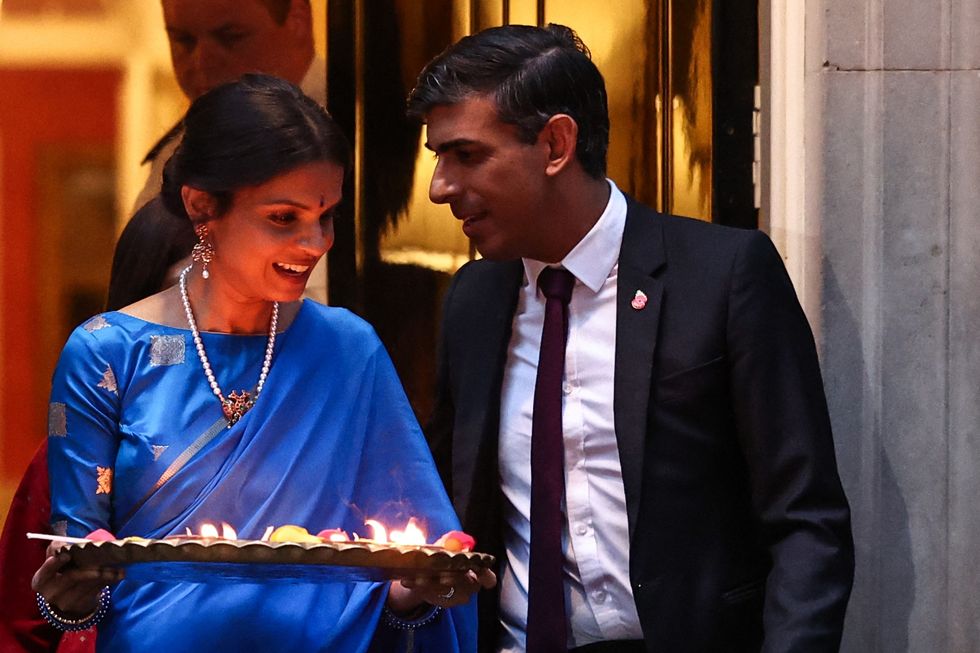
Rounding off the top 10 were tycoon Gopi Hinduja and family; high court judge Dame Bobbie Cheema-Grubb; businessman Lakshmi Mittal and his son Aditya; BBC’s first chairman of colour Samir Shah and recently appointed director of the National Theatre, Indhu Rubasingham.

The GG2 Power List recognises the 101 most influential south Asians in the country, from politics, business, entertainment and sport, among other sectors. Published by the Asian Media Group (AMG), it was unveiled at the GG2 Leadership & Diversity Awards in central London on Tuesday (5).
Shailesh Solanki, the AMG executive editor, said: “Rishi Sunak and Akshata Murty reflect the ultimate breaking of the proverbial glass ceiling.
“Sunak revealed recently that he never dreamt of being prime minister as he ‘didn’t have role models like that’. He has single headedly changed the aspirations for south Asian generations to come.
“Sunak and Murty have shown that people of colour can reach the pinnacle in the toughest of industries, regardless of your colour or background.”
Murty’s Lessons at Number 10 - where school children from all over the country bid to visit Downing Street – sees her regularly host young students as she makes the official residence more accessible to ordinary Britons.
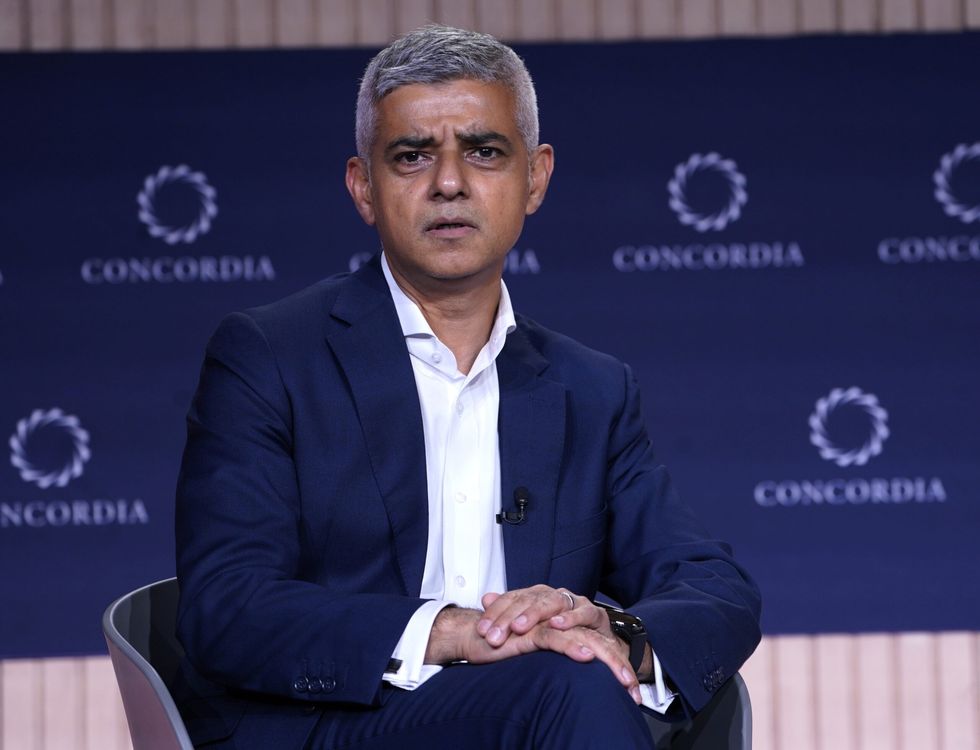
Now in its 14th year of publication, the GG2 Power List is the definitive guide to Asians in positions of power and influence across the UK.
Ahead of the local and mayoral election in May, Khan told the GG2 Power List, “It’s not about making history, a third term, it’s about shaping our future.”
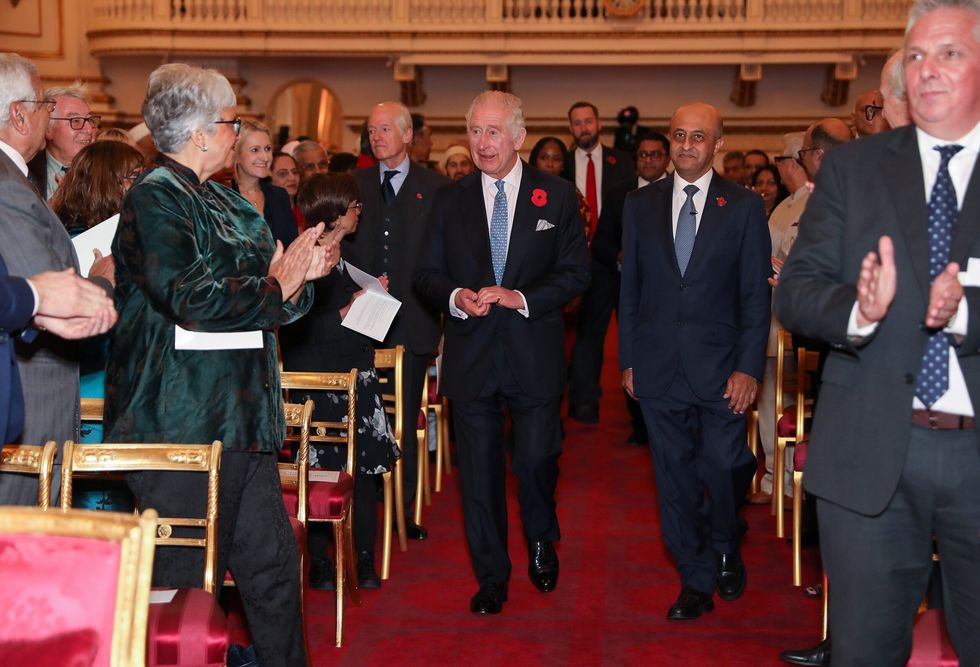
He also predicted a win for party leader, Sir Keir Starmer, with recent polls consistently placing Labour ahead of Sunak’s Conservatives by several points.
Khan said, “I’m really excited about the chance of a Labour mayor working with a Labour prime minister. I’ve known Keir [Starmer] for almost 30 years, we used to work together as lawyers. He’s a thoroughly decent man, he understands our best years are ahead of us.”

Lord Gadhia, who sits as a “non-affiliated peer” in the House of Lords, sees his role as acting like a “bridge” between the world of business and parliament, as well as between the UK and India.
Since February 2022, Gadhia has been chairman of the British Asian Trust, a charity which remains close to King Charles’s heart.

“The King continues to be very, very engaged around all the countries of South Asia,” Lord Gadhia told the GG2 Power List.
“Education and child protection are key areas. It’s not restricted to India, though it is a big area for us.
“We are using technology to help improve education outcomes. We are also working with the Asian Development Bank to launch Pakistan’s first development impact bond, which is groundbreaking. We have launched a climate innovation fund in Bangladesh, worth a million dollars and it’s already had about 170 applications.
“We are sifting through some incredible ideas.”
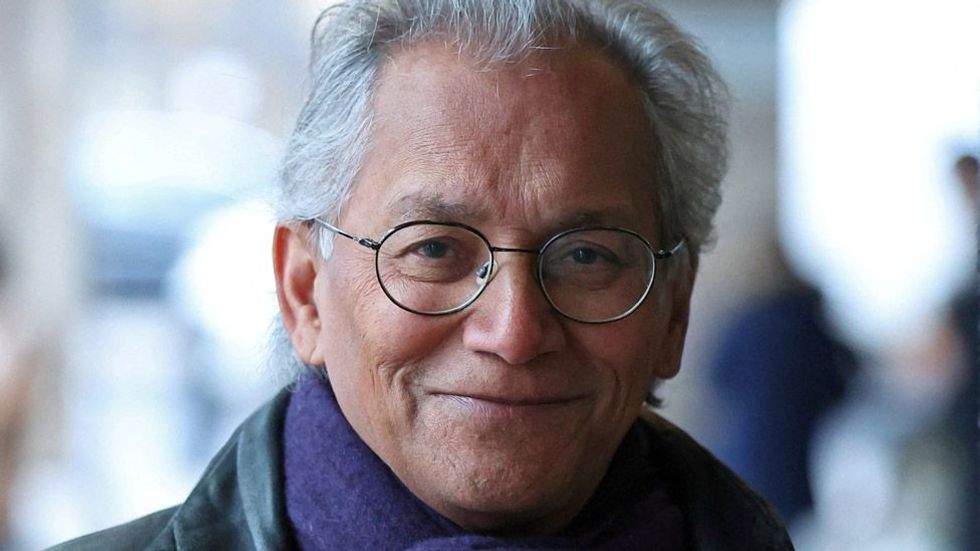
Nair, who after her ground-breaking appointment in 2022 as chief executive of the French luxury fashion house Chanel, said, “Lift as you climb”, stayed true to her word. Soon after taking charge, the India-born CEO increased funding to Foundation Chanel, which supports women and girls in fulfilling their careers, to £78 million annually.
There are 32 women in this year’s GG2 Power List, with four of them in the top 10.
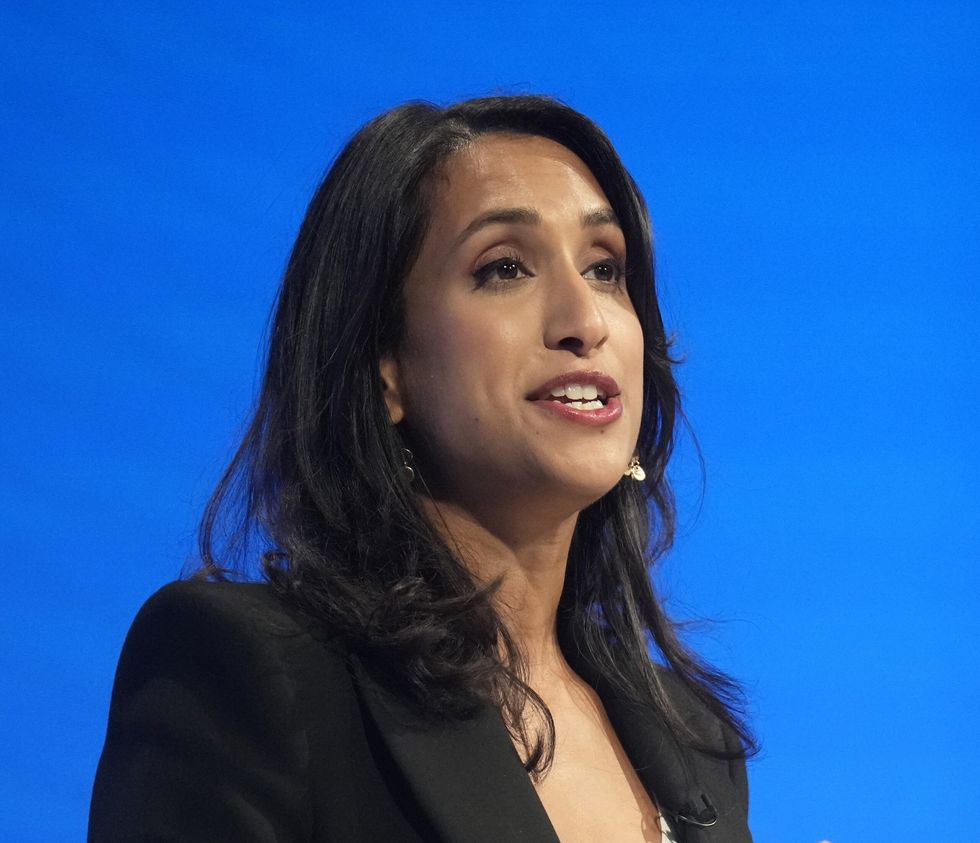
Claire Coutinho, 38, the secretary of state for energy security and net zero, and a rising star in the Conservative Party, is ranked 11th.
A close ally of Sunak, the Surry East MP said her parents inspired her to serve others. “Growing up, I watched my parents work in the NHS, listening to people’s problems and solving them as best they could. It is in that spirit that I hope to serve the people of East Surrey,” Countinho said.
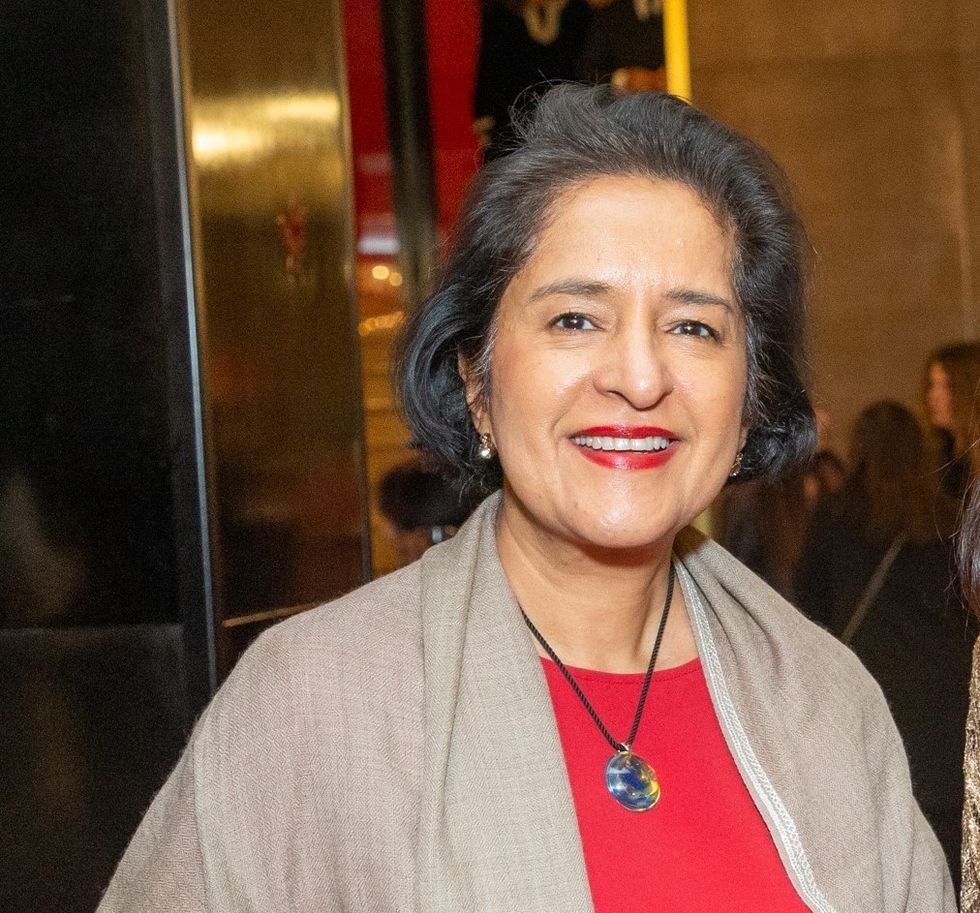
Other women on the list include Labour MP and shadow secretary state for justice Shabana Mahmood (20); Dr Swati Dhingra, an academic and member of the Bank of England’s Monetary Policy Committee (22); Baroness Shriti Vadera, chair of Prudential (24); Nusrat Ghani, minister of state at the department of Trade and Business (27); Bina Mehta, chair of KPMG (30) and judge Anuja Dhir (32).
Among other new female entrants this year are professor Kamila Hawthorne, chair of the Royal College of General Practitioners (38); Halima Begum, CEO of Oxfam (68); Dr Joya Chatterji, a professor of south Asian history and a fellow of Trinity College, Cambridge (74); playwright Lolita Chakraborti (79); and Ambika Mod, star of the hit Netflix series One Day (82).

From the politics and policy, new entrants include deputy principal private secretary Kunal Patel (35); Ravinder Athwal, director of policy at the Labour Party (67) and Ameet Jogia (87), special advisor to Sunak.
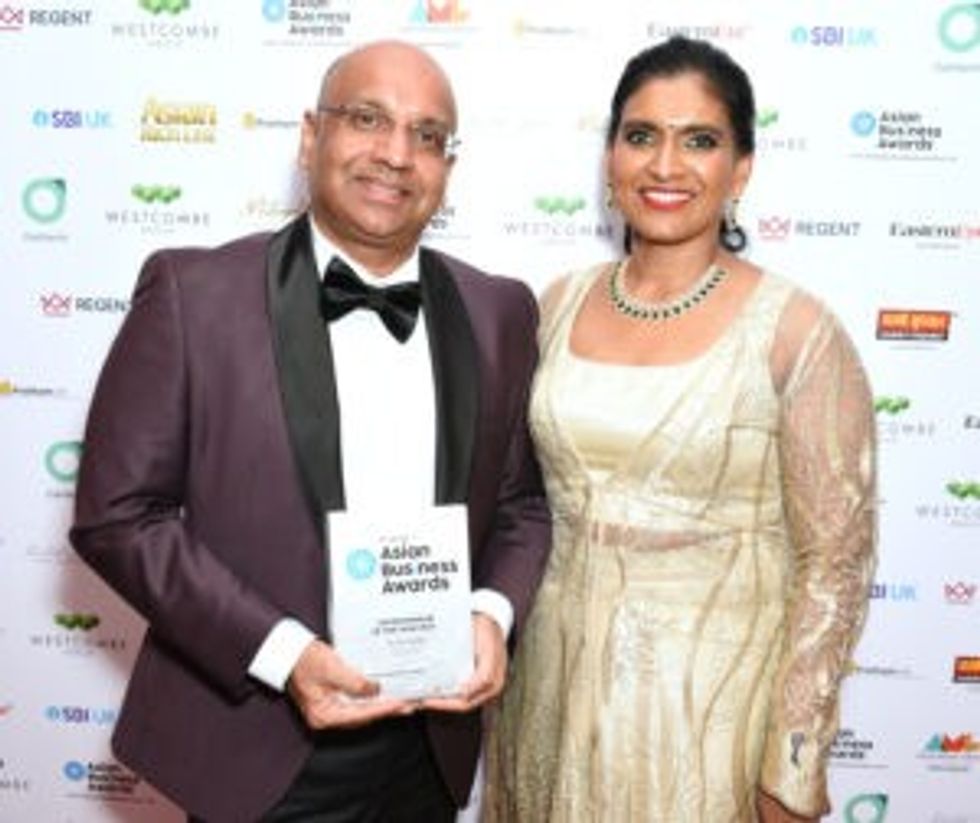
Among industrialists and business people on the list are Adar Poonawalla (44), whose Serum Institute of India makes vaccines; SP Lohia and his son Amit of Indorama (50) and Dr Selva and Tharshiny Pankaj, founders of Regent College, London, ranked 73rd.
Tuesday’s event also saw the presentation of the GG2 Leadership & Diversity Awards, which recognise top talent among Britain’s minority ethnic communities.
Solanki said both the GG2 Leadership & Diversity Awards and the GG2 Power List sought to encourage and motivate those striving to make Britain an inclusive, diverse and fair society at all levels.

It was also important to highlight the work women have been doing to counter sexism, discrimination and inequality, he added.
“Every year we continue to see inspirational women break new ground and we look forward to highlighting their achievements in the GG2 Power List.
“However, we know all too well that there are still barriers and obstacles that stop women fulfilling their potential and reaching the summit in some professions.

“We need to strive to ensure that women are equally represented in all professionals, all boardrooms and all senior executive roles. Along with our GG2 Diversity & Leadership Awards, and our new Diversity Hub portal, we want to say we are on your side and are also striving to foster greater equality.”
More than 700 people attended the GG2 Leadership and Diversity Awards, with companies also recognised for their efforts in promoting diversity, equality and inclusion in the workplace.
Full coverage of the GG2 Leadership and Diversity Awards will be published in next Friday's (15) edition of Eastern Eye. To get a copy of the 2024 GG2 Power List, contact Saurin Shah at 020 7928 1234 or email saurin.shah@amg.biz
















 Reservoir Dogs
Reservoir Dogs Michael Madsen as Budd aka SidewinderIMDB
Michael Madsen as Budd aka SidewinderIMDB Thelma & LouiseIMDB
Thelma & LouiseIMDB Free WillyIMDB
Free WillyIMDB  Donnie BrascoAlex on Film
Donnie BrascoAlex on Film  Sin CityIMDB
Sin CityIMDB  The Hateful Eight IMDB
The Hateful Eight IMDB Mulholland FallsVirtual History
Mulholland FallsVirtual History  Kill Me Again
Kill Me Again  Michael Madsen attends the Closing Ceremony and Fistful of Dollars Screening Getty Images
Michael Madsen attends the Closing Ceremony and Fistful of Dollars Screening Getty Images 
